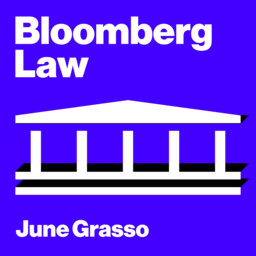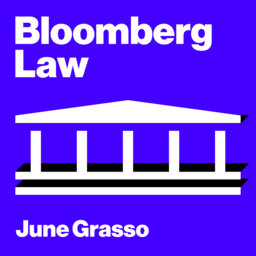Chinese Tycoon Convicted & Homeless Veterans' Plight
Bloomberg legal reporter Ava Benny-Morrison discusses the conviction of Chinese tycoon Guo Wengui for a $1 billion fraud. Sunita Patel, a professor at UCLA Law School and the founding director of the UCLA Law Veterans Clinic, discusses the effects of the Supreme Court decision on homelessness. Trademark expert Fara Sunderji, a partner at Dorsey & Whitney, discusses the Olympic trademarks. June Grasso hosts.
In 1 playlist(s)
Bloomberg Law
Expert analysis on legal issues and cases in the news. Host June Grasso speaks with prominent atto…Social links
Follow podcast
Recent clips

Tariffs Struck Down, Erasing History & Climate Rule Revoked
36:40

Slavery Exhibit, Climate Suits & Zuckerberg Testifies
36:50

Trump Sued Over Erasing History at Parks & Harvard Sued Again
32:03
 Bloomberg Law
Bloomberg Law